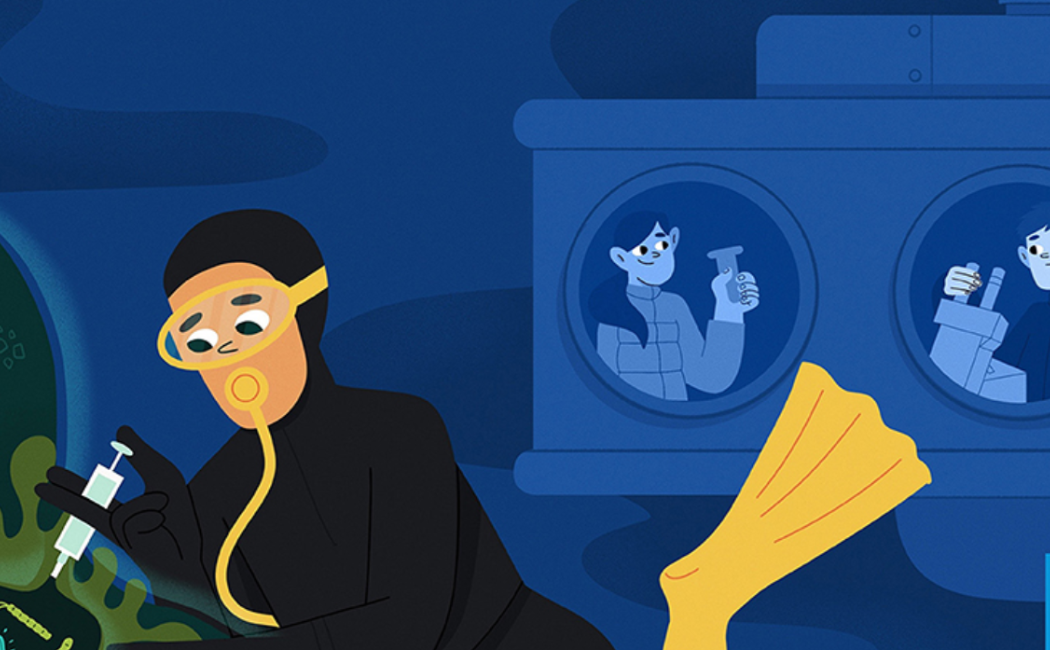


12 February, 2025
Ines Goncalves and Prof Raquel Peixoto participated in the ambitious partnership between KAUST, the Frontiers for Young Minds and UNDP, to curate and publish a collection of research papers for ‘young minds’ focusing on the 17 UN SDGs.
To make the latest scientific breakthroughs accessible to young readers, Frontiers for Young Minds fosters a unique collaboration: scientists and young people work together to produce engaging, high-quality articles, and notably, students at TKS play a crucial role in reviewing these papers, ensuring they're clear and understandable for their target age group.
To showcase how the Marine Microbiomes Lab research contributes to the Sustainable Development Goal (SDG) 14, "Life Below Water," KAUST scientists Ines Gonçalves and Raquel Peixoto have authored a compelling article for Frontiers for Young Minds, which was then reviewed by the TKS students.
Gonçalves and Peixoto's work focuses on the innovative "Coral Probiotics Village," an underwater laboratory dedicated to testing new technologies and treatments for coral reef protection and this article highlights key points:
By engaging young minds with accessible scientific information, Gonçalves and Peixoto are fostering a new generation of ocean advocates as this article promotes awareness and encourages collaborative efforts to protect our oceans.
Read the full article here: